A Comparative Analysis: Cooper and Tocqueville on Political Parties
VerifiedAdded on 2022/10/17
|5
|905
|14
Essay
AI Summary
This essay delves into the contrasting perspectives of James Fenimore Cooper and Alexis de Tocqueville on the role of political parties in a democracy. Cooper criticizes political parties for fostering division, corruption, and prioritizing self-interest over the welfare of citizens, arguing they lead to biased judgments and hinder effective governance. In contrast, Tocqueville views political parties as essential for a functioning democracy, enabling public participation, networking, and the articulation of diverse viewpoints. The essay explores their arguments, examining the historical context of their views, the impact of parties on elections, and the implications for the American political system. It analyzes how each thinker perceived the impact of parties on governance and public life, offering insights into the complexities of political organization and its effect on democratic principles. The essay concludes by synthesizing their ideas, providing a balanced understanding of the enduring debate surrounding political parties and their influence on society.
1 out of 5
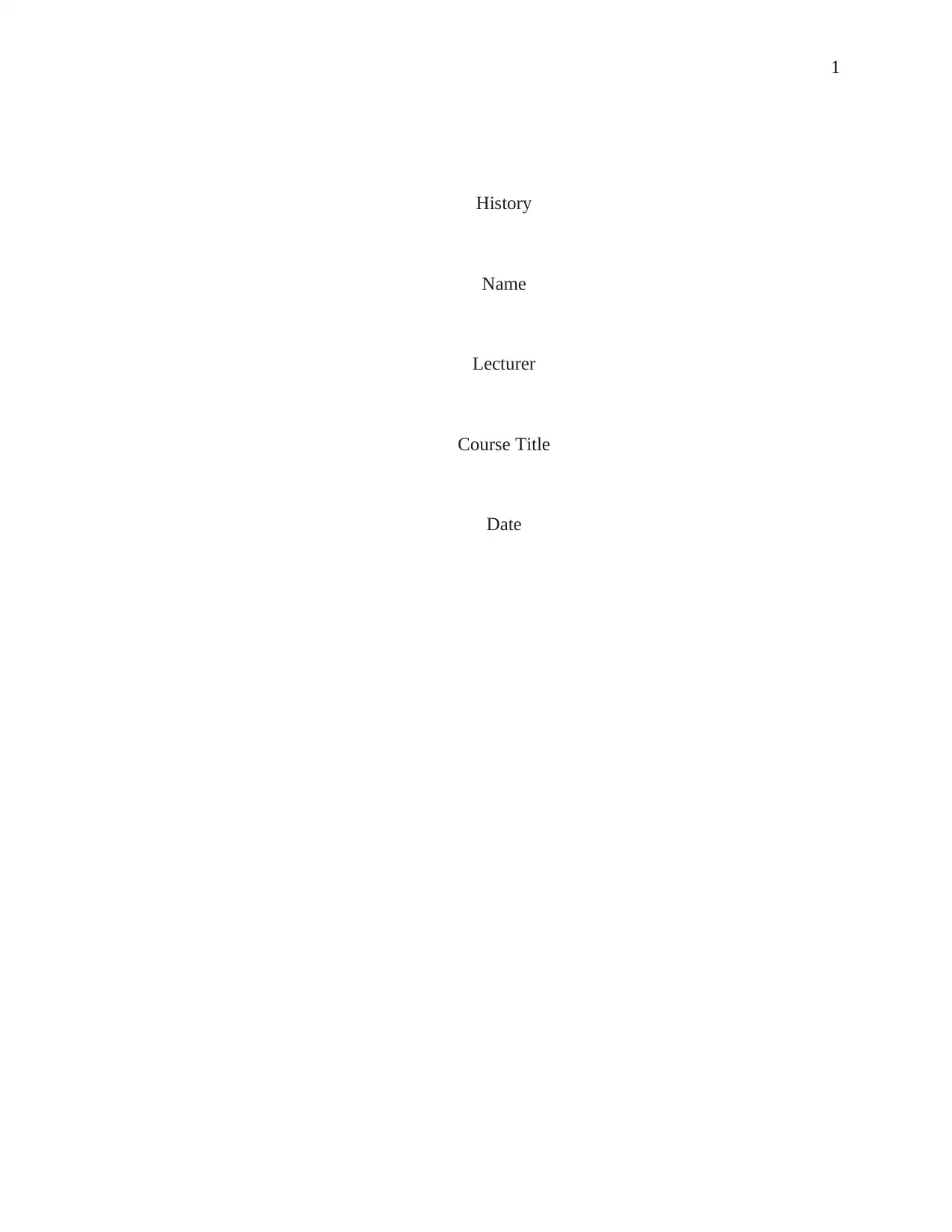
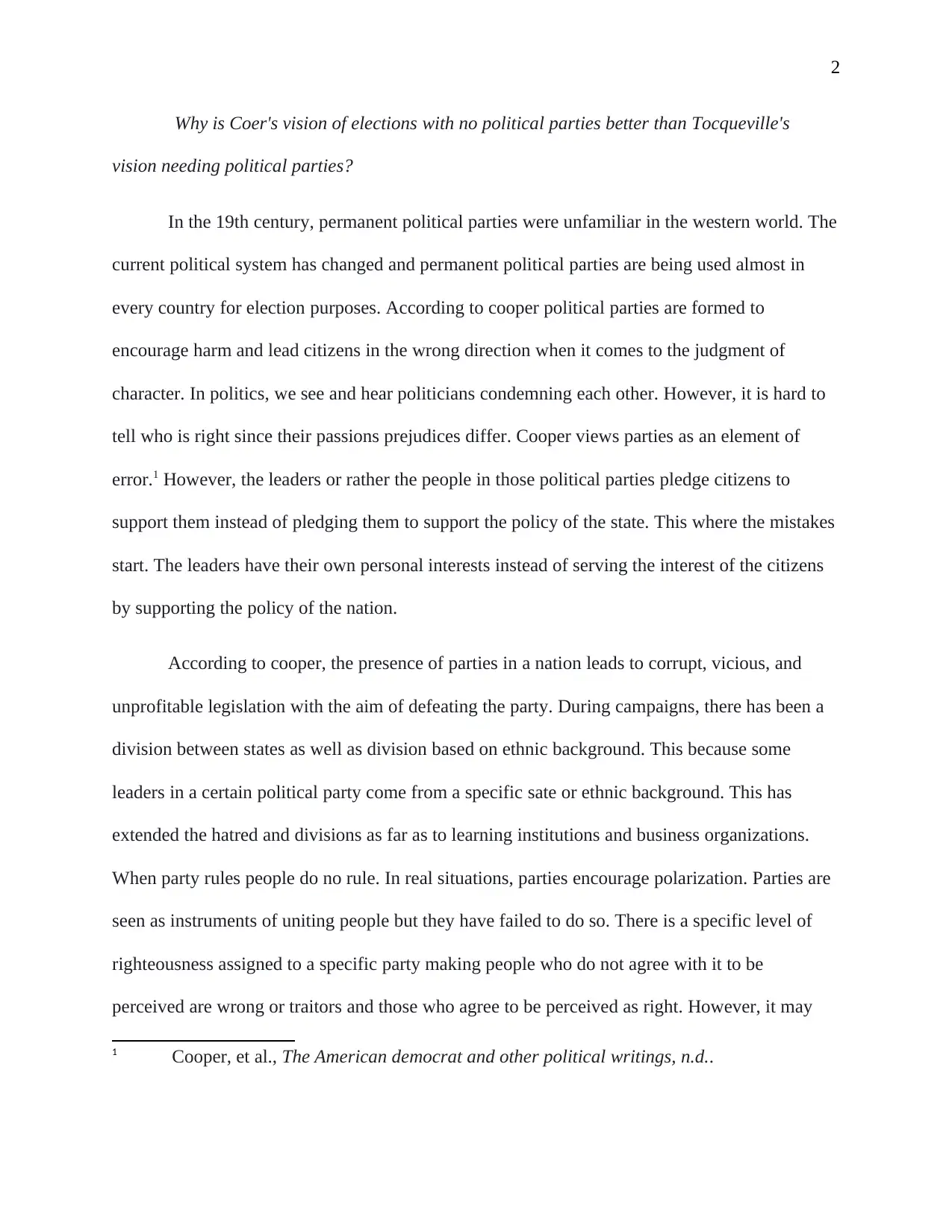
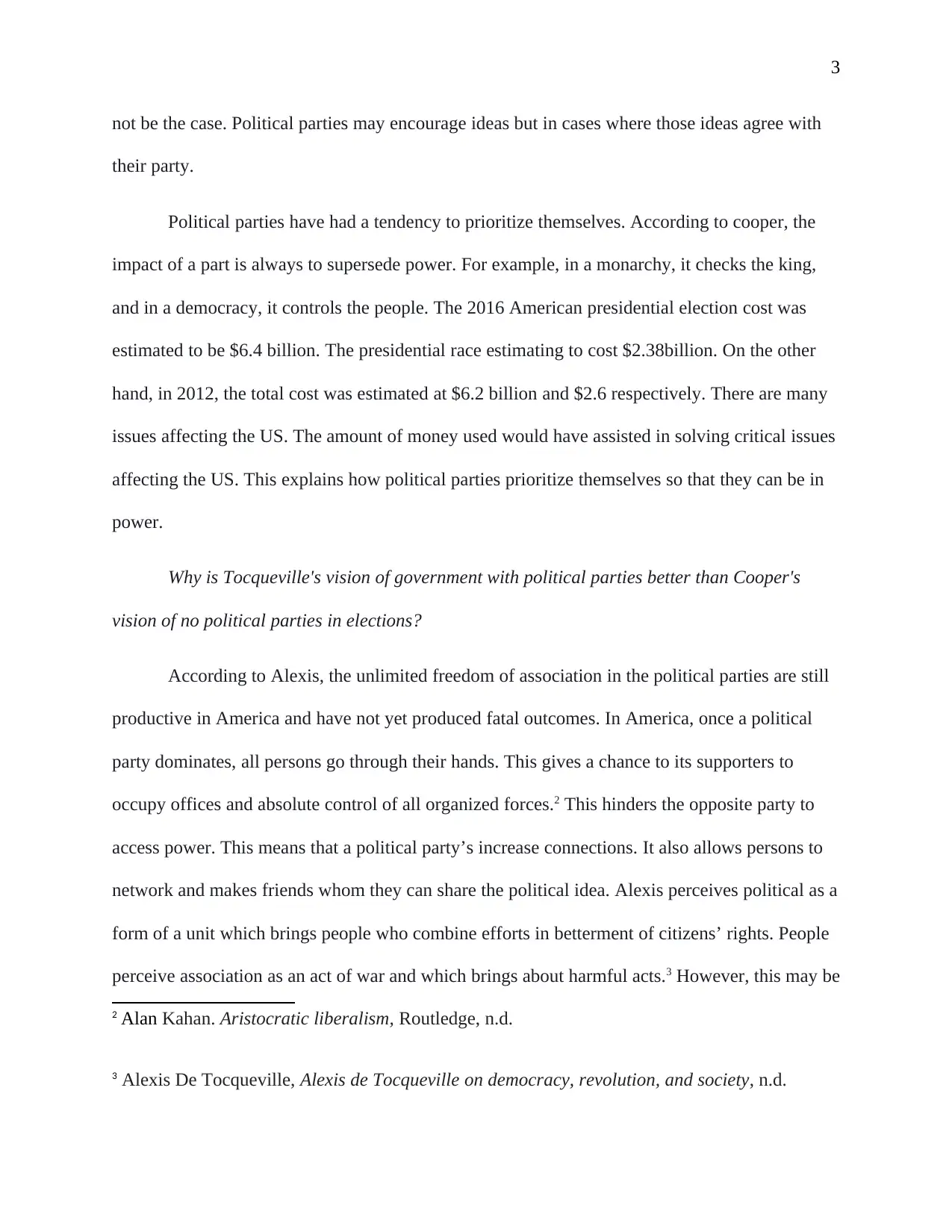

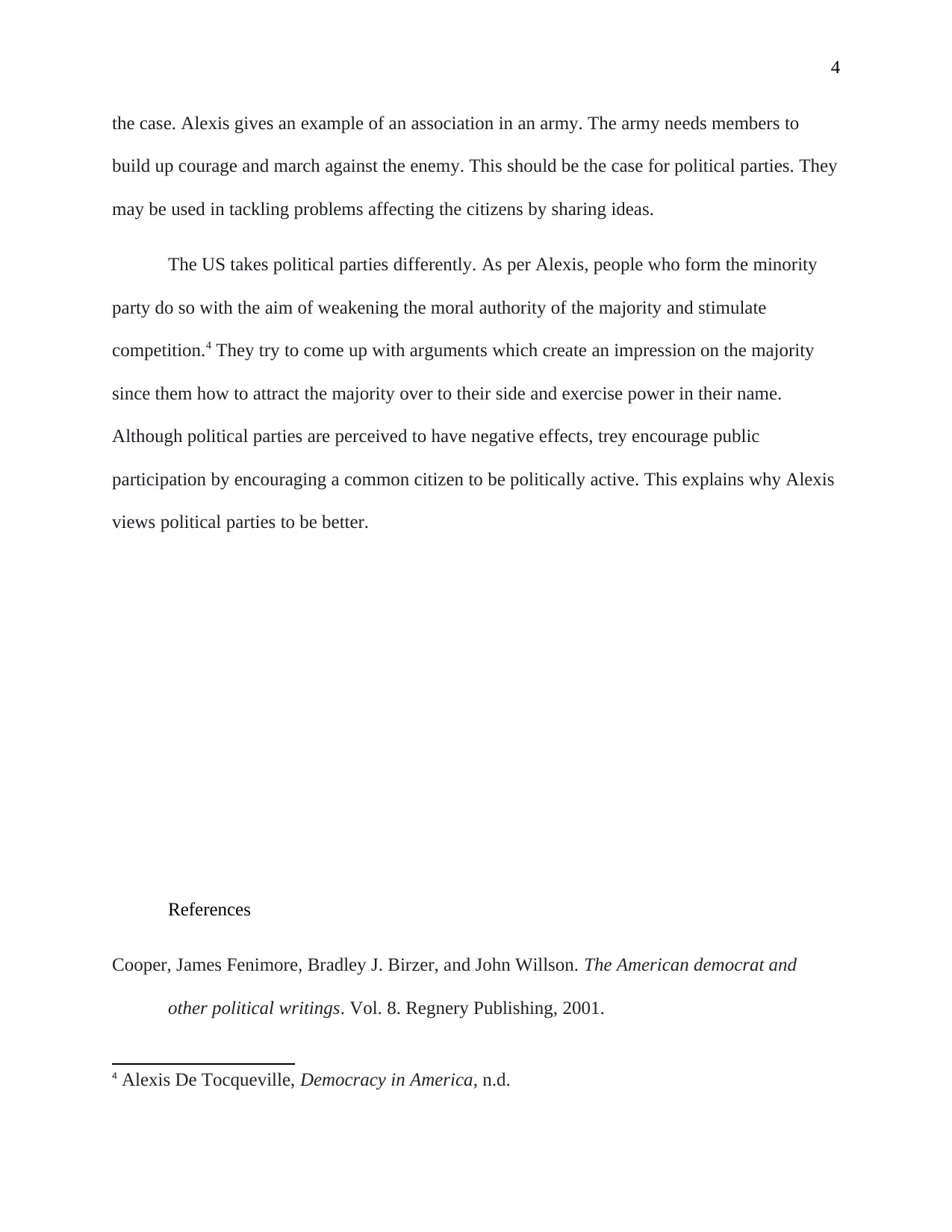
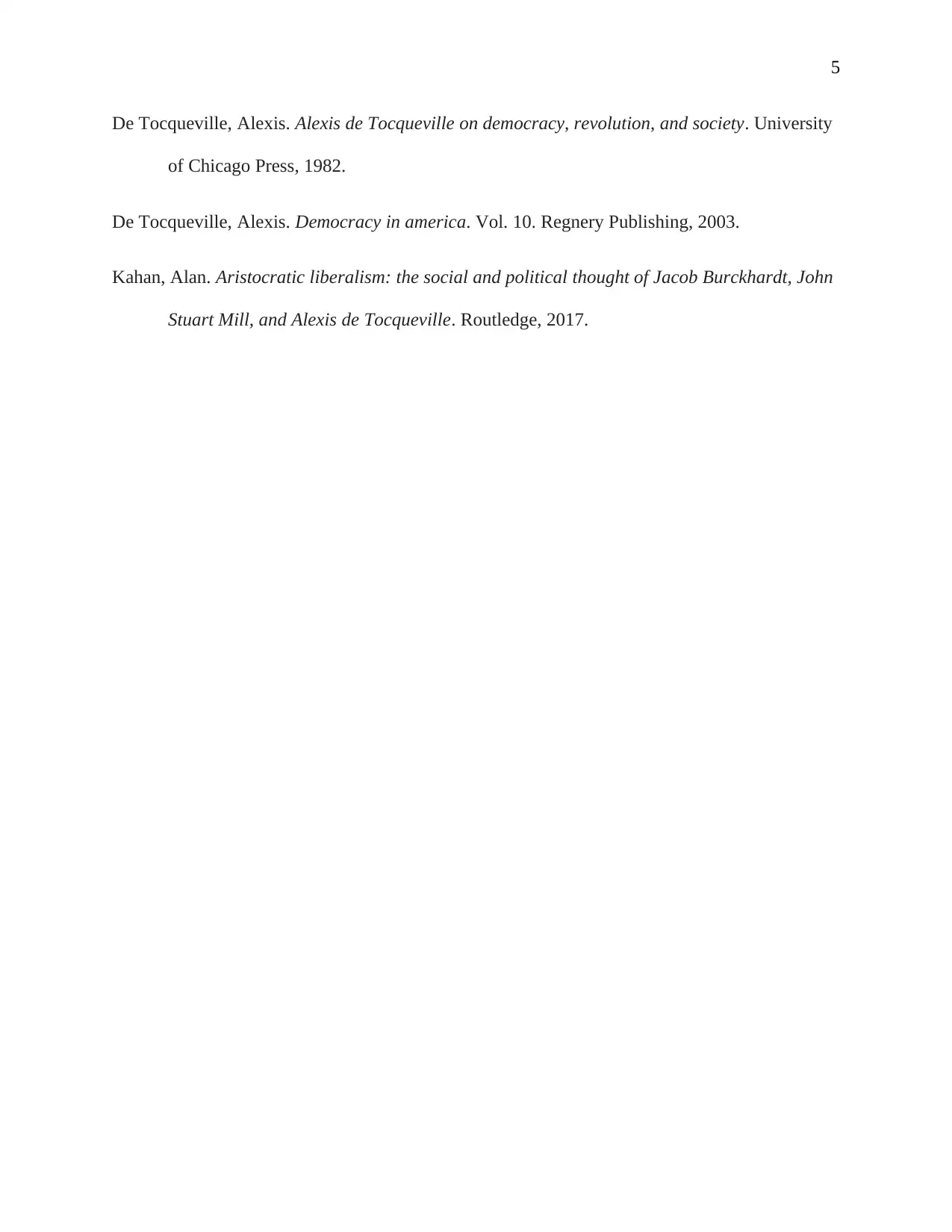
![[object Object]](/_next/static/media/star-bottom.7253800d.svg)